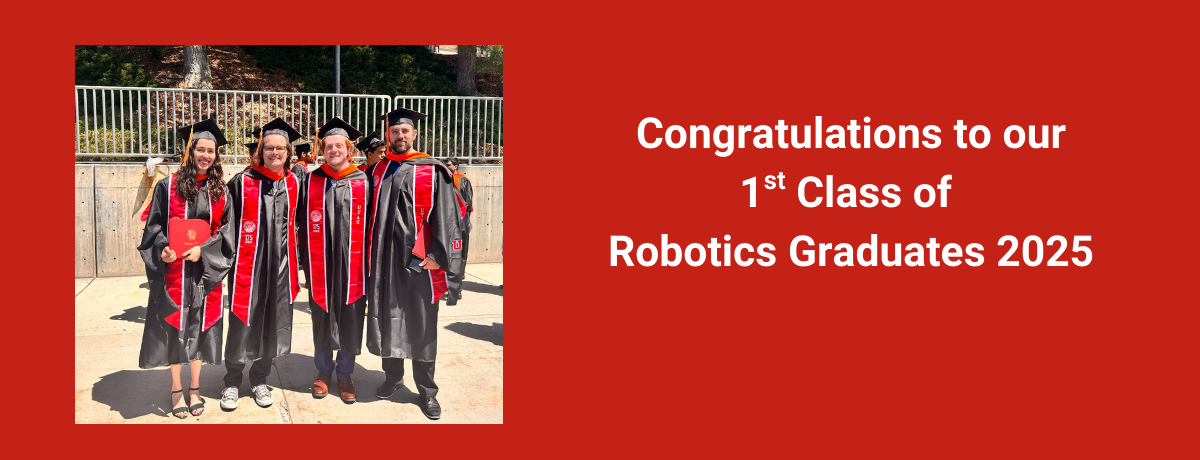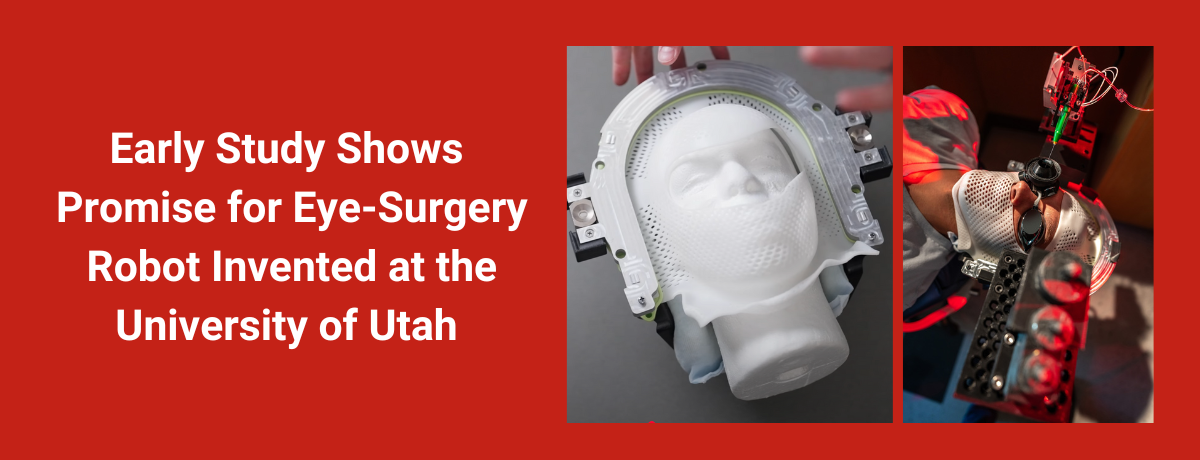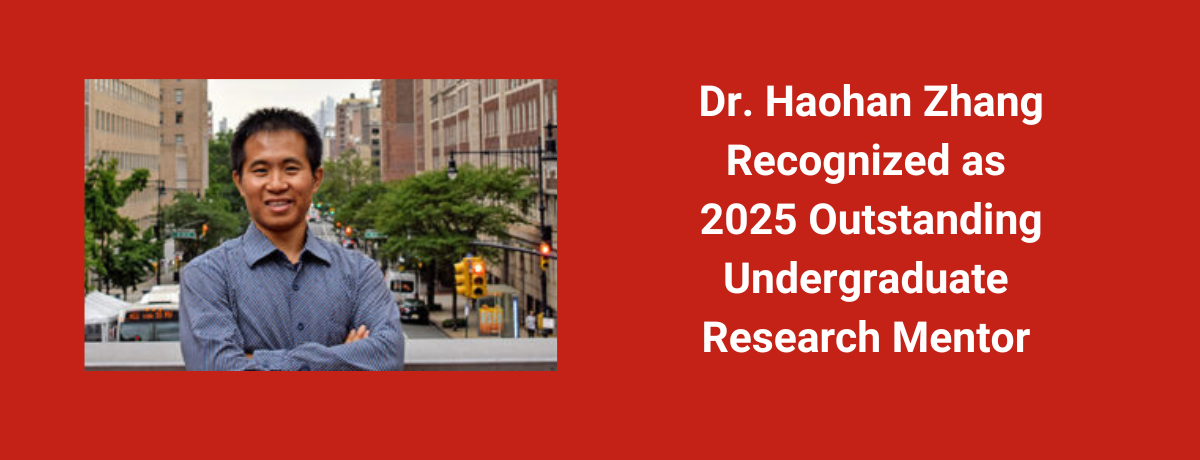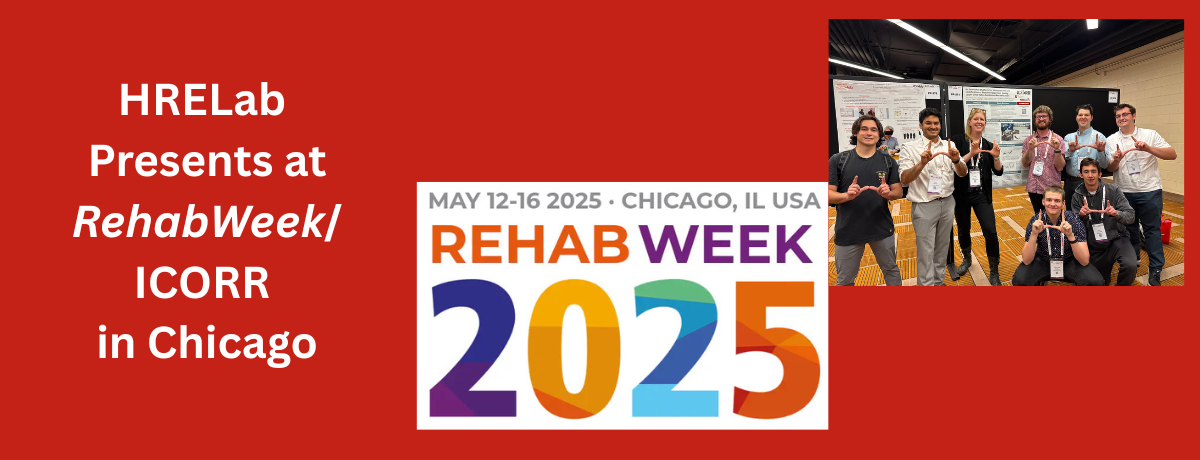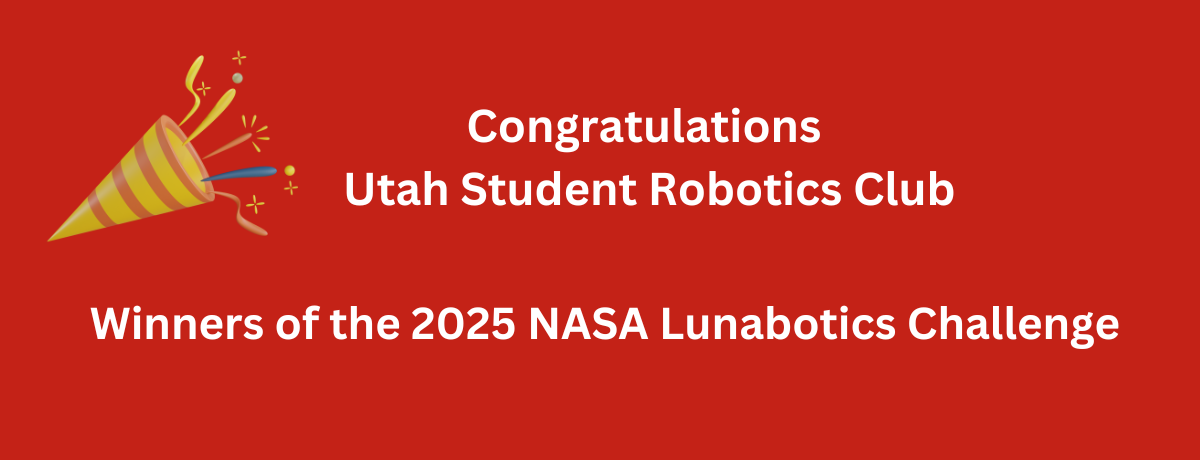Welcome to the University of Utah Robotics Center!
Reflecting the interdisciplinary nature of robotics, the Robotics Center consists of core faculty from the Department of Electrical & Computer Engineering, the Department of Mechanical Engineering, and the Kahlert School of Computing, as well as affiliated faculty from across the University of Utah. We are excited to announce that MS and PhD degrees in Robotics are available now! Students can also earn a graduate certificate, or an undergraduate certificate or minor, while pursuing a traditional engineering or computer-science degree.
Department of Electrical and Computer Engineering
The premier research institute for electrical and computer engineering in Utah. Our engineers are changing the way we interact with the world from computer circuitry, optics, and power systems to smart devices and bionic arms.
Department of Mechanical Engineering
Our department conducts innovative research and provides a world-class education that instills the professional, technical, critical-thinking, and communication skills necessary for students and faculty to make impactful contributions to society.
Kahlert School of Computing
The School of Computing (until 2000 the Computer Science Department) at the University of Utah has a long history of distinguished faculty and alumni who have made substantial contributions to research and industry.
University of Utah
The University of Utah, is a public coeducational space-grant research university in Salt Lake City, Utah. As the state's flagship university, the university offers more than 100 undergraduate majors and more than 92 graduate degree programs.
Robotics News
Dr. Zhang Receives Outstanding Undergraduate Research Mentor Award
Haohan Zhang, assistant professor in the Department of Mechanical Engineering and Robotics Center faculty, received the Outstanding Undergraduate Research Mentor …Eye-Surgery Robot Study at the U
Researchers at the University of Utah’s John A. Moran Eye Center and the John and Marcia Price College of Engineering …Dr. George Recognized with University Early Career Teaching Award
Excellence in Action: Each year, the University of Utah recognizes the achievements of exceptional faculty members in teaching, research, mentorship …HGN Lab Team Recognized by U Innovation Awards
The HGN Lab Team, led by Professor Tommaso Lenzi, received a U Innovation Award for Breakthrough of the Year in …Robotics Center Faculty Join ARPA-H Project to Develop Fully Automated Surgical Robot

